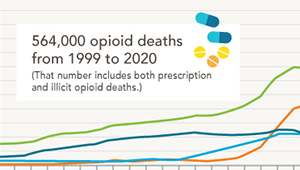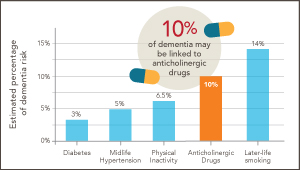- Our Research
- Research Areas
- Addictions
- Aging & Geriatrics
- Behavior Change
- Biostatistics
- Cancer
- Cardiovascular Health
- Child & Adolescent Health
- Chronic Illness Management
- Health Informatics
- Health Services & Economics
- Healthy Communities
- Medication Use & Patient Safety
- Mental Health
- Obesity
- Preventive Medicine
- Social Determinants of Health
- Vaccines & Infectious Diseases | COVID-19
- Our Scientists
- Collaborate with Us
- Our Publications
- Research Funding Sources
- Research Areas
- News and Events
- Get Involved
- About Us
- Live Healthy
All Articles on Medication Use
- Talking to an addictions researcher
KPWHRI Collaborative Scientist Leah Hamilton, PhD, MPhil, answers questions about her recent and upcoming projects.
- Deprescribing: Less may be more
Dr. Sascha Dublin explains why sometimes not taking medications may be a safer and healthier choice.
- Could ‘deprescribing’ anticholinergic drugs prevent dementia?
Dr. Larson reflects on splashes, ripples, and new research, which builds on his earlier findings from the ACT study.
- Opioid-prescribing safety: Finding real-world solutions for a nationwide epidemic
Fatal overdoses involving prescribed opioids quadrupled from 1999 to 2009, climbing to almost 16,000 U.S. deaths annually—more than cocaine and heroin overdoses combined. What wasn’t clear was how to combat this growing threat.
- Many Alzheimer’s patients get drugs with opposing effects
Many people taking common Alzheimer’s disease medications—cholinesterase inhibitors—are given medications with anticholinergic properties, which oppose their effects. Group Health Research Institute scientists investigated how often that happens and reported on the consequences in an “Early View” study e-published in the Journal of the American Geriatrics Society.
- Opioids linked to higher risk of pneumonia in older adults
Opioids—a class of medicines commonly given for pain—were associated with a higher risk of pneumonia in a study of 3,061 adults, aged 65 to 94, e-published in advance of publication in the Journal of the American Geriatrics Society. The study from researchers at Group Health Research Institute and the University of Washington (UW) also found that benzodiazepines, which are drugs generally given for insomnia and anxiety, did not affect pneumonia risk.
- Group Health establishes major initiative to prevent opioid abuse and overdose
A report in the August 2011 issue of Health Affairs describes a major initiative at Group Health to make opioid prescribing safer while improving care for patients with chronic pain. Health Affairs is the nation’s premier health policy journal, and its August issue focuses on substance abuse.
Kaiser Permanente Washington Health Research Institute for:
Kaiser Permanente Washington Health Research Institute
Phone: 206-287-2900Fax: 206-287-2871
Contact us
Sign up for our newsletter
Policy on Conflict of Interest
Nondiscrimination Notice and Language Access Services
Land Acknowledgment
Our Seattle offices sit on the occupied land of the Duwamish and by the shared waters of the Coast Salish people, who have been here thousands of years and remain. Learn about practicing land acknowledgment.





